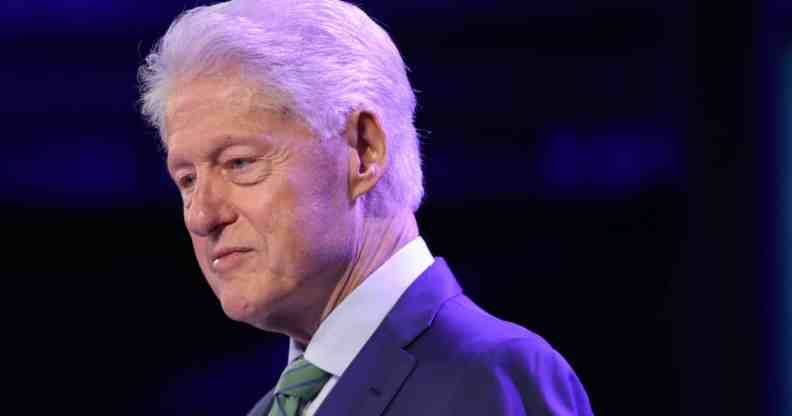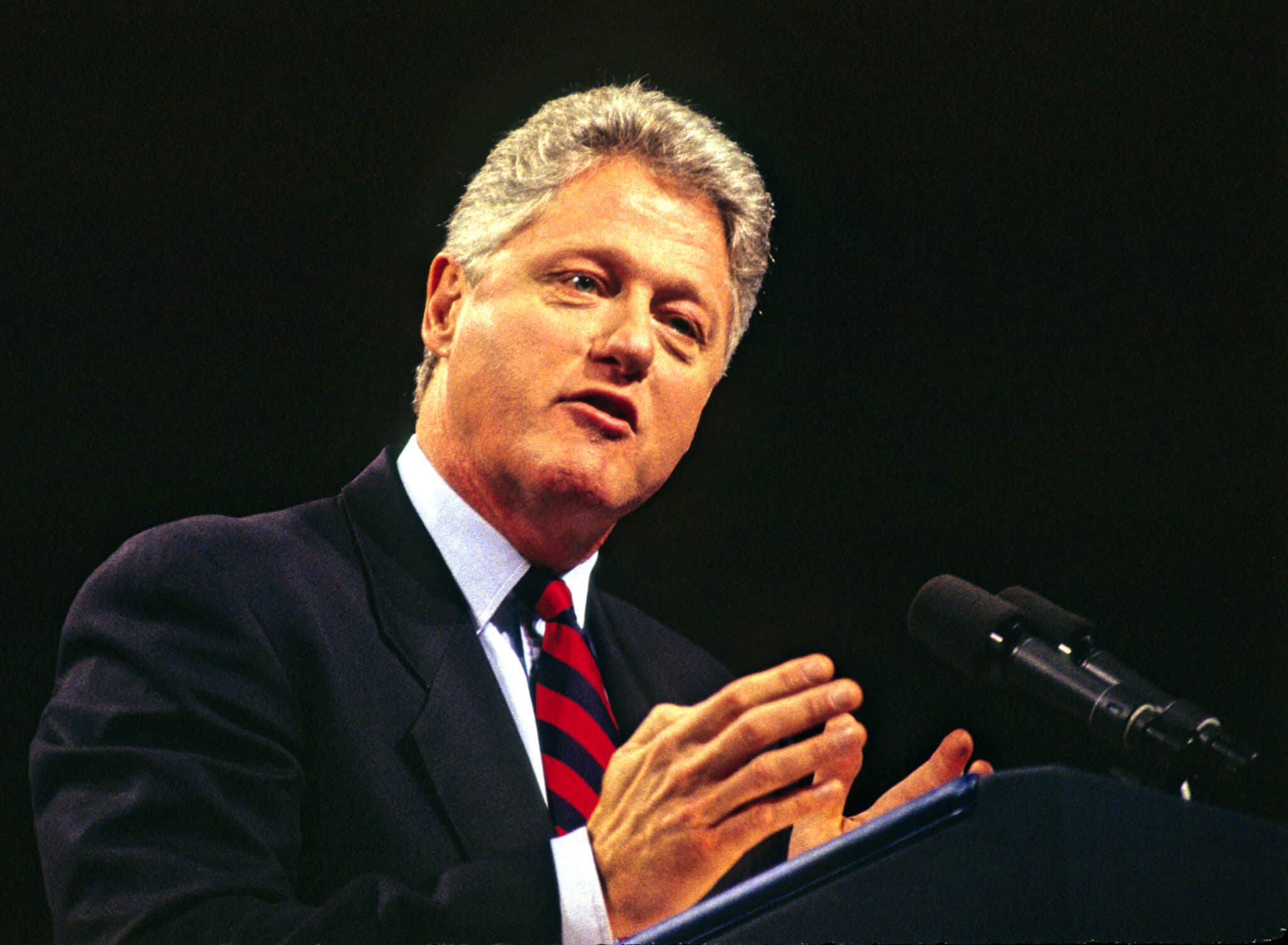Bill Clinton made sure same-sex couples couldn’t marry – and it’s still a problem today

Clinton-era LGBTQ+ rulings are under scrutiny with the possibility of nullified Defence of Marriage Act being reactivated. (Getty/Spencer Platt)
The US is once again feeling the sting of Clinton-era LGBTQ+ decisions with the threat of the Defense of Marriage Act (DOMA) becoming active law once more.
The bill, which was signed by former president Bill Clinton on 21 September, 1996, defined marriage as a union between one man and one woman.
For decades, it allowed states to deny same-sex marriage through anti-LGBTQ+ legislation. The law was eventually nullified by the 2015 Supreme Court’s decision on Obergefell v Hodges, which legalised same-sex marriage nationally.
While effectively dormant, the bill is still present in US federal legislation. If Obergefell is nullified – something that Supreme Court Justice Clarence Thomas suggested could happen after the court overturned Roe v Wade – it could become active once more.
Since Roe was overturned, gutting abortion rights, the Democratic Party has reintroduced a law originally proposed in 2009 that would rescind the harmful effects of DOMA by repealing it completely, calling it the Respect for Marriage Act (RFMA).
Despite passing through the House comfortably with a vote of 267 to 157, the bill has seen pushback by Republican senators who claim it needs to be restricted to protect so-called “religious freedoms”.
The bill’s importance has been underlined by supporters, including Republican senators Rob Portman and Thom Tillis, who are working with Democrats to gain the votes needed for the bill to pass.

American politician US President Bill Clinton speaks from a podium at the Democratic Leadership Council’s (DLC) 1995 Annual Conference in the Washington Convention Center, Washington DC, November 13, 1995. (Ron Sachs/Getty)
Bill Clinton backed overturning his own anti-gay law
Clinton’s opinions on LGBTQ+ rights have shifted over the past few years, including in 2011 when he urged several states to legalise same-sex marriage.
He backed the original version of RFMA in an article from 2013, where he wrote that we live in a “different time”.
Referencing a statement he included upon signing the anti-LGBTQ+ bill, which said it should not be used to discriminate, he commented: “Reading those words today, I know now that, even worse than providing an excuse for discrimination, the law is itself discriminatory. It should be overturned.
“It is not, ‘can any of us imagine better?’ but ‘can we all do better?'” he wrote. “That answer is of course and always yes.”
It was a contrast to Clinton’s position on same-sex marriage at the time of signing the bill. He said he’d “long opposed governmental recognition of same-sex marriages” in a statement after signing DOMA.
Indeed, in the years prior to signing the anti-LGBTQ+ bill, Clinton had both advocated for and signed anti-LGBTQ+ legislation while making constant reiterations that he believed “marriage is an institution for the union of a man and a woman”.
Most notable was his signing of the “Don’t Ask, Don’t Tell” bill, which allowed gay men and women to serve in the armed forces as long as they refrained from telling people about their sexuality.
The law saw almost 14,000 military officers discharged from 1994 to 2010, with a peak of approximately 1273 in 2001, though the true number of people impacted is expected to be even higher.
It was eventually repealed by president Barrack Obama in 2010, when he signed a bill to allow openly LGBTQ+ troops to enter the US military.

